Thea Gilmore - Interview
by John Clarkson
published: 24 / 5 / 2008
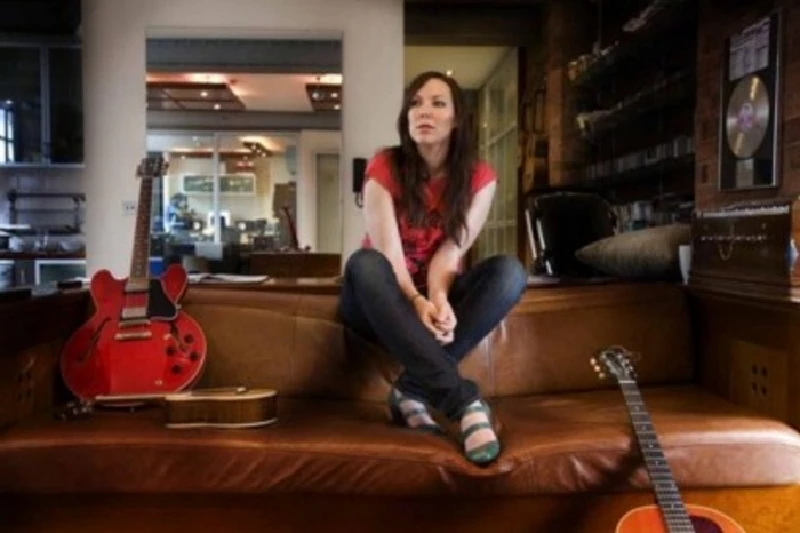
intro
Massively acclaimed British singer-songwriter Thea Gilmore has just released her seventh album, the stark and acoustic 'Liejacker', which is both a call for truth and a testament to two turbulent years in her life. She talks to John Clarkson about it
Thea Gilmore has met with such critical accolades as being described as "the best wordsmith of her generation" by 'The Independent' and "the best British singer-songwriter of the last ten years-and then some more" by 'Uncut'. Born in November 1979, Thea Gilmore released her debut album, 'Burning Dorothy', in 1998 when she was still a teenager, and after, beginning her career working in a studio, she was discovered by her long term collaborator, producer and husband since 2005, Nigel Stonier. She has since then gone on to release several more albums on several different labels, which have included 'The Lipstick Conspiracies' (2000), 'Rules for Jokers' (2001), 'Songs from the Gutters' (2002), 'Avalanches' (2003) and 'Harpo's Ghost'(2005). Her latest album, 'Liejacker', which came out in late May just eighteen months on from 'Harpo's Ghost', was written at a time of great turbulence in Gilmore's life. She had been diagnosed with depression before the release of 'Harpo's Ghost' and was continuing to battle against the effects of it. She had also parted company with Sara Gilmore, her manager of ten years standing, and split with her new and biggest label, Sanctuary, when it went into receivership in the same week 'Harpo's Ghost' was released. There were, however, also periods of great joy when Gilmore and Stonier completed building their tiny home studio, and also saw in late 2006 the birth of their first child, a son. 'Liejacker', which has been released on independent label Fruitcake, is both a call for truth, and also a testament to that period. There are songs on it that are harrowingly confessional, such as 'The Wrong Box' and 'Black Box', which tell of Gilmore's darkest days of illness, and others which are more redemptive and hopeful, such as the opening and closing numbers 'Old Soul' and 'The Lower Road', and tender love song 'Slow Journey'. Musically it is an album of contrasts as well. Much of it was recorded at home and is stark and acoustic, featuring Gilmore on guitar and an eccentric range of other instrumentation, including a dobro, a harmonium and at one point even a chimney hood. Stonier also makes occasional appearances on these songs on piano. Other songs are, however, fuller, involving a band, while both 'Old Soul' and 'Lower Road' are duets, the former finding Gilmore singing with Dave McCabe from the Zutons, and the latter with legendary 60's singer-songwriter and folk artist Joan Baez. The latter also features the Waterboys' Steve Wickham on violin. Pennyblackmusic spoke to Thea Gilmore on the eve of a month long British tour about 'Liejacker'. PB :It is an album which is predominantly about telling truths. Is that why you gave it the title of 'Liejacker' ? TG : That's right. I became very aware that a lot of kids making music in the music industry these days don't really get the opportunity to tell their truth because a lot of the time it is not saleable. I wanted to make it clear that there were people out there who rail against that and stand up for it. Hopefully I can count myself alongside them. PB : This is something though that you have always tried to do since you were in your teens, haven't you ? TG : I have really tried to. I don’t get it right all the time by any stretch of the imagination, but I do my very best to write what is honest or as honest to me as possible. I think that it's a very important part of making music. PB : In contrast to 'Harpo's Ghost' which had a much glossier sheen to it, ‘Liejacker’ in many ways a lot starker. Did you make a conscious decision before you started that it was going to be a much sparser, more acoustic record or was that just the way it turned out? TG : I didn’t actually make a conscious decision to make an album in the first place, so I didn’t really think about how it was going to turn out. It was definitely a response to 'Harpo's Ghost' though and the way it sounded because there were, as is the way with a big studio production, a lot of people involved in influencing my decisions on that record. I wanted to get away from all that and bring the music right down to me. It helped really that I was playing around in my own studio for the first time and so I didn't have all that studio gloss which you get from going into an expensive studio. I literally had what I had which was one microphone and a variety of weird and wonderful instruments and a bit of imagination, and so I was working within those limitations and that is what makes the record sound the way it sounds. PB : If you hadn't set out to do an album, were you just home recording then and seeing what happened basically ? TG : Yeah. As I had the studio set up at home I was able to record the songs as soon as they arrived. It wasn't supposed to be an album. It was just for me. It was just meant to be me connecting with the music that I was making, and enjoying writing and recording, and getting away from feeling like I was being watched or controlled all the time. It was really only when I got five or six songs into the writing of what became this record that I even thought of it as a record at all. PB : You have said that this is the first album that "I have really felt a deep burn to make." Why did you say that ? TG : The songs were desperate to get out and were certainly the first songs that I felt would really do some damage if I didn’t get them on paper. They had to come out. I didn’t have an option on it. Normally when I write I feel I have a choice. I can put my time into writing it or I can do something else, but I felt that I had to get these songs out or I might suffer. PB : In what way did you think you might suffer ? TG : I was going through some pretty bad times at that particular point in my life and I had a lot of problems with depression. I think I used the song writing as a real catharsis and a way of making myself better. I think I would have really suffered and I certainly don't think I would have got better as quickly as I did if I hadn't been able to write about it. PB : A lot of the songs on ‘Liejacker’, and 'Black Letter' especially, are pretty harrowing. Were those songs written during particularly bad days or were they written afterwards with you looking back on it all ? TG : They were written during the depths of it all. I like to think the album tells the story of my journey out of that period of my life because there are some very hopeful stories there as well. 'Black Letter' arrived, however, very quickly when I was deep in a depressive state. Listening to that song now is like listening to a potted version of where my head was at the time. It is therapeutic for me to listen to it now and to realise quite how far I have come since I was at that point that I wrote that song. PB : Do you think that it will be therapeutic for other people as well who are suffering from similar problems ? TG :I would like to think so. Depression is such an individual thing that you can never know quite tell how a song about it will hit people. My mother can't listen to 'Black Letter'. I suppose she is perhaps a bit too close to me, but she finds it very difficult to listen to. Some people I know, however, have listened to it and have said that is exactly how they felt in a similar situation and knowing that someone else has felt like that has really helped them. It is like anything to do with mental health. You can't predict how people will react, but I do feel that people listening to it might get the feeling that they are not alone in dealing with it and that in itself is very helpful. PB : Despite the bleak subject matter of much of it, it is, however, an album which seems to come out on the side of optimism. Would you agree ? TG : Absolutely. That was how my life went. I came out of depression straight into motherhood which is about as positive as it gets. When you become a parent, you stop being able to focus on yourself, and to navel-gaze as I was very prone to, as you've got another person and your responsibility lies with them now, so, yeah, I would say it is positive beyond belief. PB : Did you spend a lot of time thinking as a result thinking how you were going to begin and end the album and on the track listing ? TG : I didn't want to start the record too dark and I didn't want to finish the record too dark, because when you go through something like depression it is important to realise that there is hope. It was important, therefore, for to me to be able to finish the record with a note of hope. The last song, ‘The Lower Road’, is about the passage of time and your place in the world and being able to pass the baton onto the next generation. That in itself is a very hopeful notion I think. PB : Is the opening song, 'Old Soul', about that too to a degree as well and passing on the baton again as well ? TG : Absolutely. I wrote 'Old Soul' when I was just about to have my son. It was me exploring the idea of what home meant and is about the people who make your life important and special. It was essentially me singing to my son. PB : Both those songs, 'Old Soul' and 'The Lower Road', are duets. The first one features Dav McCabe and the second one features Joan Baez. Did you deliberately plan to start and finish the album with a duet ? TG : I didn't necessarily intend to open and close with a duet. That was just the way the songs went in the studio. I knew that I always wanted 'The Lower Edge' to be a duet and I hoped that Joan Baez would do it and I was lucky that she wanted to. With 'Old Soul' it was only when I got to recording it properly that I decided that it needed another vocal. I felt that it was in danger of bypassing people and becoming a little one-dimensional, and it needed another voice to keep people's attention and them listening. There wasn't a grand plan though to have a duet at the beginning and at the end. It just worked out that way. PB : Dave McCabe and Joan Baez are in their very different fields very big names. How did you know them and how were you able to get them involved ? TG : Just through fortune really ! I have known Joan Baez since 2004. I knew her through her management and I also went on tour with her in the States, so I know her pretty well. I know Dave McCabe slightly less well. A guy I do a lot of recording with in Liverpool knows Dave McCabe pretty well and set things up there. I have always loved Dave McCabe's voice and I have always thought it has never quite got the recognition it deserves in the Zutons. I just thought his voice would be perfect for it and I think he really pulled the stops out for this one. PB :'The Lower Road' also features Steve Wickham from the Waterboys on fiddle. How did that come about ? TG : That came about because I went on tour with the Waterboys a couple of years ago. The last show we did was in London and after the London show we went back to the Waterboys' hotel and just sat around singing songs in the bar which was lovely. Steve played a load of fiddle on a load of my songs and I just loved the way he played. I sent him that song and said, "Would you be up for playing some fiddle on it ?" He absolutely loved the song and he came back with this incredibly haunting violin stuff, which I have to say I don't think that anyone else could have played. It sounds so like Steve Wickham (Laughs). PB : While several of the songs feature other musicians, some of the other songs feature just you and whatever instrument you were playing and in some cases your husband and producer Nigel. With those songs once you recorded them in the studio ,did you just leave them untouched ? TG : Certainly some of them. We added a bit of organ at a later date to 'The Wrong Side' and we put a little bit of compression on 'Rosie'at a later date as well, but for the most part no. A lot of those songs are exactly as they came out my bedroom. PB : There is also an extra track, a cover of the Dead or Alive song, 'You Spin Me Round Me'. What was the appeal to you of that song and why did you decide to add that ? TG : I had always wanted to cover that last song. I have just never quite got around to it, and I was given the opportunity to do it by the 'Liverpool Number Ones Project'. As a result of Liverpool being made Capital of Culture, they were getting together the 56 number ones that they have had and they were looking for people to cover each one. They presented me with a list of the 56 number ones, which, as well as lots of the Beatles and Gerry and the Pacemakers, had things like 'How Much is That Doggie in the Window ?' which not many people wanted to do. 'You Spin Me Right Round' was obviously there too and, as I had always wanted to cover, that I decided that was the one I would do. Everyone else seemed pretty happy about that because I don't think anyone else wanted to do that particularly and so I got the opportunity to do it. I loved the version we did and so many people haven't been able to get a hold of the Liverpool album and have asked for it that I decided to pop it on the album. I felt it needed a home somewhere and I didn't just want it to disappear into the ether. PB : You have received very high critically applause. Such accolades must be flattering, but do they put enormous pressure on you as a songwriter ? TG : I think they would do if you paid them too much attention to them. They're lovely things to have written about you, but they are about current fashion really. I think you have to find a box to put those things in and to try not to let that stuff seep into the writing. As soon as you do, you become that little bit less honest because you're always thinking about what other people are going to think about you. As 'Liejacker' wasn't really meant to be a record in the first place, it is for me the most truthful record I have ever made. I wasn't thinking about stuff like that. I wasn't thinking about which record labels or newspapers or magazines were thinking about the music I was making. I was just making it. You need to have a place to put praise. Be grateful, but then have a place to put it and don't think about it too much. PB : You're about to start one of your trademark lengthy tours. You're going to be playing approximately twenty shows over a four week period in Britain. You have said in the past that you have appreciated the reviews, but it's the vibe that you get from the fans that you like the most. Is that still very much the case ? TG : Oh, absolutely ! You begin to reassess the songs that you have written when you play them live and you see how people respond to them. They cease to become yours. It's a really interesting process playing live. Songs that you have written and that are very personal suddenly start to belong to the people you play them to essentially. They don't belong to you anymore. I love that process. The process of sharing music and being able to bring music to people is the biggest honour there is. PB : You have now been writing and recording songs since you were in your teens. Would you ever want to do anything else ? TG : I can never see myself giving up and recording songs, but I could certainly see myself writing a book one day. I love working with words. That is my biggest passion really PB : Final question. What other plans do you have for the immediate future ? You're going to be doing the tour. What happens then ? TG : I think we will be going over to America. We have just signed a big deal in America so I think there is going to be quite a bit of work to do over there. Obviously the writing will continue as it always does. Hopefully there will be another album as well soon. PB : Thank you.
Band Links:-
http://www.theagilmore.net/https://www.facebook.com/theagilmoreofficial
https://twitter.com/theagilmore
https://www.instagram.com/theagilmore/
https://www.youtube.com/user/TheaGilmore
Picture Gallery:-
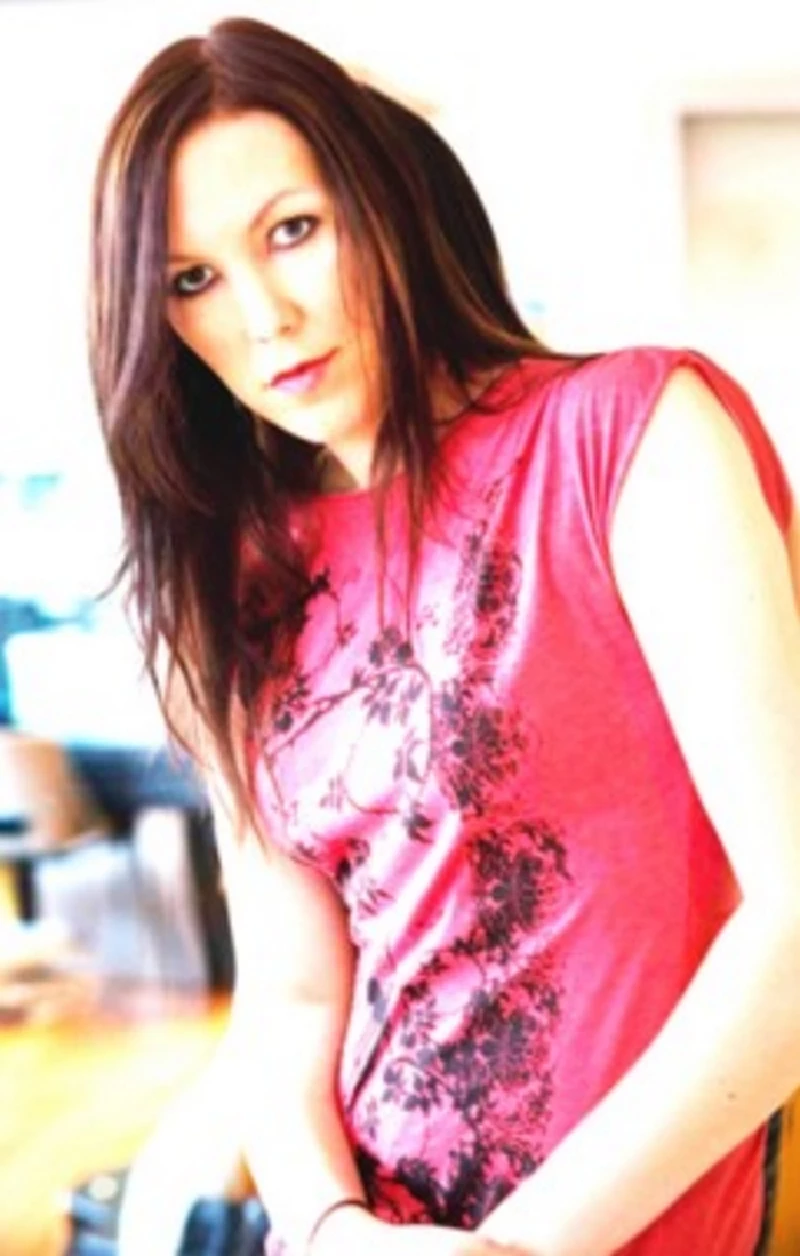
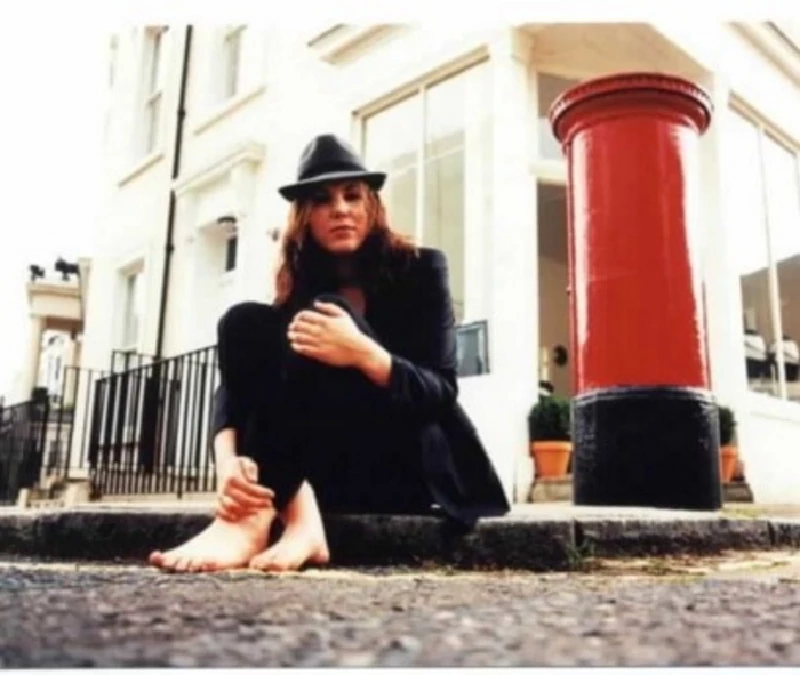
Visitor Comments:- |
| 3245 Posted By: Judith , Liverpool on 15 Oct 2022 |
|
Hello,
I came across you by chance Thea ,on the cover of a health magazine which inspired me to listen to your music. I congratulate you on your talent and bought tickets for your concert at the Philharmonic music room which my husband and we thoroughly enjoyed.
Thankyou .
God bless you.❤️🙏
|
interviews |
|
Interview (2010) |
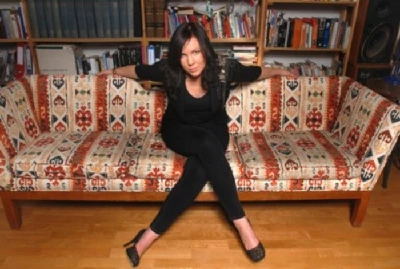
|
| Critically acclaimed English singer-songwriter and musician Thea Gilmore talks to Lisa Torem about the challenging nature of her music and her recently released and milestone tenth album |
reviews |
|
Small World Turning (2019) |
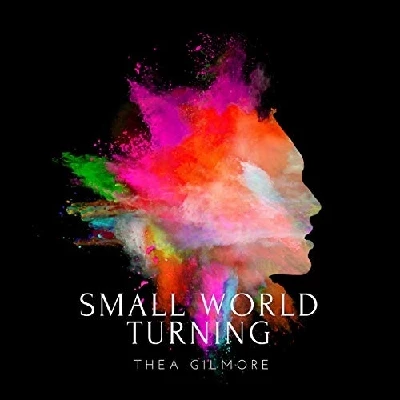
|
| New album from Thea Gilmore featuring Cara Dillon, Seth Lakeman and a host of others which shows Gilmore is still in a class of her own |
| Don't Stop Singing (2011) |
| John Wesley Harding (2011) |
| Murphy's Heart (2010) |
most viewed articles
current edition
Peter Doherty - Blackheath Halls, Blackheath and Palace Halls, Watford, 18/3/2025 and 21/3/2025Armory Show - Interview with Richard Jobson
Liz Mitchell - Interview
Deb Googe and Cara Tivey - Interview
Lauren Mayberry - Photoscapes
Max Bianco and the BlueHearts - Troubadour, London, 29/3/2025
Garfunkel and Garfunkel Jr. - Interview
Maarten Schiethart - Vinyl Stories
Clive Langer - Interview
Sukie Smith - Interview
previous editions
Heavenly - P.U.N.K. Girl EPBoomtown Rats - Ten Songs That Made Me Love....
Trudie Myerscough-Harris - Interview
Doris Brendel - Interview
Beautiful South - Ten Songs That Made Me Love...
Pulp - Ten Songs That Made Me Love...
Dwina Gibb - Interview
Kay Russell - Interview with Kay Russell
Barrie Barlow - Interview
Sound - Interview with Bi Marshall Part 1
most viewed reviews
current edition
Davey Woodward - Mumbo in the JumboNigel Stonier - Wolf Notes
Wings - Venus and Mars
Kate Daisy Grant and Nick Pynn - Songs For The Trees
Only Child - Holy Ghosts
Neil Campbell - The Turnaround
Philip Jeays - Victoria
Darkness - Dreams On Toast
Suzanne Vega - Flying With Angels
Charles Ellsworth - Cosmic Cannon Fodder
Pennyblackmusic Regular Contributors
Adrian Janes
Amanda J. Window
Andrew Twambley
Anthony Dhanendran
Benjamin Howarth
Cila Warncke
Daniel Cressey
Darren Aston
Dastardly
Dave Goodwin
Denzil Watson
Dominic B. Simpson
Eoghan Lyng
Fiona Hutchings
Harry Sherriff
Helen Tipping
Jamie Rowland
John Clarkson
Julie Cruickshank
Kimberly Bright
Lisa Torem
Maarten Schiethart